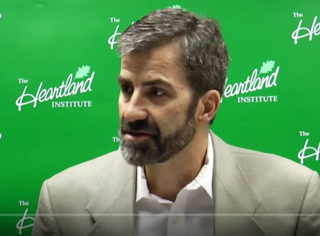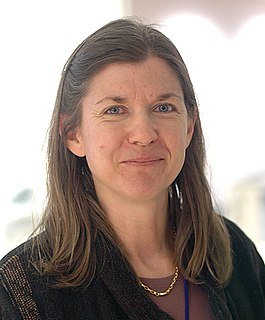A Quote by Joseph L. Bast
How could two teams of scientists come to such obviously contradictory conclusions on seemingly every point that matters in the debate over global warming? There are many reasons why scientists disagree, the subject, by the way, of an excellent book a couple years ago titled Wrong by David H. Freedman. A big reason is IPCC is producing what academics call "post-normal science" while NIPCC is producing old-fashioned "real science.
Quote Topics
Academics
Big
Book
Call
Come
Conclusions
Contradictory
Could
Couple
David
Debate
Disagree
Every
Excellent
Global
Global Warming
How
Many
Matters
Normal
Obviously
Old
Old-Fashioned
Over
Point
Post
Producing
Real
Reason
Reasons
Science
Scientists
Seemingly
Subject
Teams
Two
Warming
Way
While
Why
Wrong
Years
Years Ago
Related Quotes
There is no science in global warming. "Mr. Limbaugh, that's typical of what you! That's the most outrageous statement I've ever heard anybody ever make! No science in global warming?" Do you know how I know there's no science in global warming, folks? Because they tell us a "consensus of scientists" agrees that X. There is no consensus in science.
I'm a skeptic. ...Global Warming it's become a new religion. You're not supposed to be against Global Warming. You have basically no choice. And I tell you how many scientists support that. But the number of scientists is not important. The only thing that's important is if the scientists are correct; that's the important part.
Historians of a generation ago were often shocked by the violence with which scientists rejected the history of their own subject as irrelevant; they could not understand how the members of any academic profession could fail to be intrigued by the study of their own cultural heritage. What these historians did not grasp was that scientists will welcome the history of science only when it has been demonstrated that this discipline can add to our understanding of science itself and thus help to produce, in some sense, better scientists.
Heidi Cullen had said that all of these local and cable weather forecasters who have been certified by the AMS, the American Meteorological Society, should be decertified if they refuse to accept the proven science of man-made global warming. There are numerous credible scientists, who have not been convinced that this is anything other than sunspot activity or normal cycles that the earth has gone through for billions and billions and billions and billions of years. Science can't prove man-made global warming, they simply can't, so they come up with this notion of consensus.
See, I am the mayor of Realville, and science is not up to a vote. It either is or isn't. Whatever it is, it is or isn't, but it's not up to a vote. Global warming doesn't exist because a "consequences of scientists" agree. Manmade global warming either is happening or it isn't, but it isn't up to a vote. But it is being presented to you as a consequences of scientists. Therefore, the science is not settled. Besides that, we all know that it's a hoax now. It's just some people don't want to accept that, but it is.
I don't think any administration, when they come in, thinks that their job is to tell the scientists what the science looks like or to be quiet about the science. Scientists need to remain true and not allow science to be politicized. Scientists are not politicians, and no politician should consider themselves to be a scientist.
Global warming is a false myth and every serious person and scientist says so. It is not fair to refer to the U.N. panel. IPCC is not a scientific institution: it’s a political body, a sort of non-government organization of green flavor. It’s neither a forum of neutral scientists nor a balanced group of scientists. These people are politicized scientists who arrive there with a one-sided opinion and a one-sided assignment.
The IPCC 'policy summaries,' written by a small group of their political operatives, frequently contradict the work of the scientists that prepare the scientific assessments. Even worse, some of the wording in the science portions has been changed by policy makers after the scientists have approved the conclusions.
For a long time, the scientists have been telling us global warming increases the temperature of the top layer in the ocean, and that causes the average hurricane to become a lot stronger. So, the fact that the ocean temperatures did go up because of global warming, because of man-made global warming, starting around in the '70s, and then we had a string of unusually strong hurricanes outside the boundaries of this multi-decadal cycle that is a real factor; there are scientists who point that out, and they're right, but we're exceeding those boundaries now.
Scientists blame the audience for being too stupid, shallow, or lazy to understand. There has been a fascinating debate in the blogosphere lately about communicating science to the public, and it's clear that most scientists just don't get it. They can't be bothered to talk to real people. Nobody will care about your issues if the price they have to pay is listening to a long lecture from Morton the science bug.

































